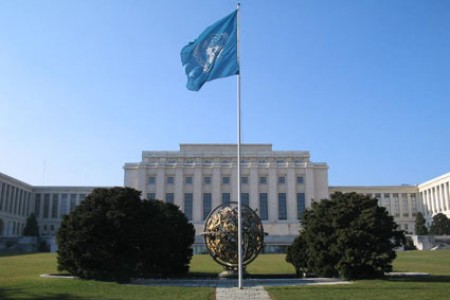Report of the Special Rapporteur on the human rights of migrants, Gabriela Rodríguez Pizarro (2004)

The Special Rapporteur of the Commission on Human Rights on the human rights of migrants, Gabriela Rodríguez Pizarro, visited the Islamic Republic of Iran from 22 to 29 February at the invitation of the Government.
The Special Rapporteur met with representatives, at the Director-General level, from the relevant directorates and units of the following ministries: the Ministry for Foreign Affairs, the Ministry of the Interior, the Ministry of Employment and Social Affairs, the Ministry of Health and the Ministry of Labour. The Special Rapporteur met with representatives of Afghan migrants, non-governmental organizations (NGOs), as well as representatives of United Nations agencies and programmes, including the United Nations Development Programme, the Office of the United Nations High Commissioner for Refugees, the United Nations Assistance Mission in Afghanistan, the World Food Programme and the International Organization for Migration.
While in Iran, the delegation undertook a one-day visit to Mashed and visited a refugee camp and a detention centre for migrants in Khourastan Province.
The Special Rapporteur would like to extend her appreciation to the Iranian authorities for the cooperation and assistance extended to her throughout the mission. The annexed report reflects the outcome of the Special Rapporteur’s visit to Iran.
The Special Rapporteur is aware of the efforts the Iranian authorities have deployed to accommodate populations that have fled their country in search of peace and security, and the humanitarian assistance provided to Afghans and Iraqis fleeing their country has been duly noted. This represents an economic and social burden for Iran, given the constant and huge number of persons residing on its territory. However, there is very often a tendency to equate the situation of irregular migrants with that of refugees. The Special Rapporteur considers that this confusion may be prejudicial to the protection of the rights of migrants and asylum-seekers.
The Special Rapporteur considers that it is important to acknowledge that there are a number of migrants in the country, mainly Afghans, and to proceed from this acknowledgement to the implementation of a national policy of assistance and protection for migrants. This policy must be reflected in concrete programmes implemented from a human rights perspective. The adoption of measures to ensure that migrants enjoy in practice the right to legal assistance in all administrative procedures relating to their migration status should be considered.
The Special Rapporteur considers that the difficulties involved in curbing irregular immigration stem from many factors, including the difficult economic and political situation of the countries of origin and the fact that the migrants see Iran as a place where there are more opportunities; some of the Afghans are encouraged to “try their luck” by relatives and friends already living and working, legally or irregularly, in Iran. The fact that there are not yet clear policy, legislative and administrative measures in place governing legal migration from Afghanistan to Iran contributes greatly to irregular and extralegal cross-border movements and encourages the use of smugglers and traffickers.
The Special Rapporteur recommends that the Iranian authorities initiate and encourage more domestic research on and evaluation of the presence and working conditions of foreign migrant workers and their impact on the Iranian economy and society. That would help policy planners to better address issues of legal migration, to identify where foreign labour is genuinely required and, as a corollary, to determine which sectors might require protection against competition from migrant labour.

